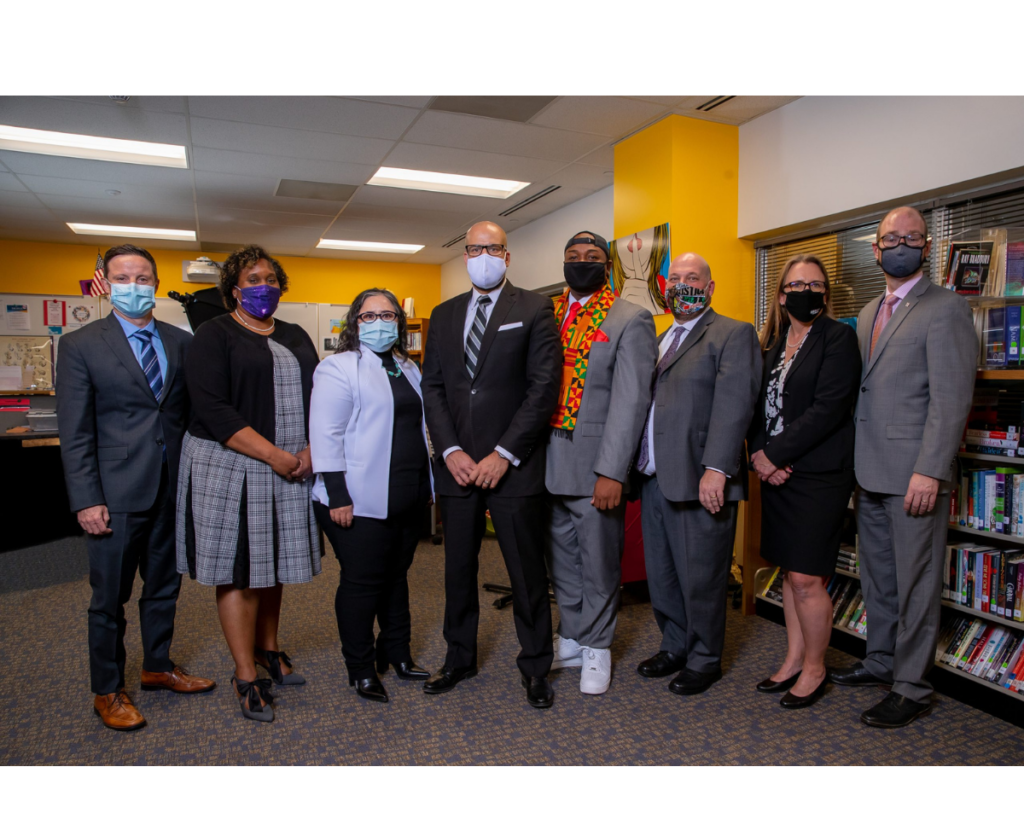As we roll into the final week of the 2021-22 school year, Denver Public Schools remains without clear academic goals for moving the district forward.
A draft strategic plan supposedly will be out soon, but early signs aren’t encouraging. The school board and senior staff seem unable to agree on how to measure whether students are learning.
The board last month approved evaluation goals for Superintendent Alex Marrero in all areas but the most important – student learning. Draft academic goals were so full of holes, generalities, and unattainable numbers that board members agreed to spend more time refining them.
There also seems to be some confusion between what should be in a strategic plan versus what measures should be used to evaluate Marrero after his first year running DPS.
More board time has been spent debating what should go into Marrero’s evaluation than in discussing the strategic direction of the district. That’s not surprising, given that the board continues to neglect any public discussion of abysmal student learning trends, especially among students who were lagging even before the pandemic.
The flashpoint at a recent work session was over a proposed policy on teaching and learning crafted by some board members that apparently struck Marrero and his team as so muddy in places as to be useless.
It’s not hard to see why. The policy statement reads in part:
“All students will demonstrate a well-rounded educational experience to include the arts, literacy, numeracy and critical thinking skills at or above grade level, both as a whole and by sub-groups. Students demonstrating below grade level learning will demonstrate greater than a year’s growth each school year.”
This vagueness on what a well-rounded education entails seems to have frustrated Marrero and three board members. Marrero pleaded for some guidance during a recent school board work session.
Also, some board members have objected to standardized tests as a heavily weighted measure of student learning or Marrero’s performance, but haven’t proposed an alternative measurement method.
“If you feel that there’s an over-reliance on state assessments, then please tell me and then we’ll make a shift. We’ll remove it altogether,” Marrero said.
Remove it altogether? Well, that certainly would eliminate a major vulnerability that could have an impact on the evaluation.
While board members stopped short of advocating for taking state tests completely out of the equation, Director Scott Esserman said he had concerns about the “over-reliance on standardized testing” and would not support the teaching and learning policy document until they were addressed.
In the document, Marrero and his team proposed using the standardized test, called Colorado Measures of Academic Success (CMAS) to set a baseline for how students, and sub-groups of students are performing after two years without comprehensive state testing.
Those who aren’t reading, writing or doing math at grade level need to show academic growth in the 65th percentile, which would suggest they are at least on the road to catching up.
But it’s a fantasy. Growth of that magnitude has never occurred across the board in DPS, and especially not among the most academically struggling subgroups of students.
In any event, how this would be measured without using the state test is a mystery no one seemed prepared to answer at the meeting.
Demonstrating that vagueness is perhaps contagious, Marrero also proposed “reducing the number of students reading below grade level in K-3 as measured by READ ACT data,” without specifying by how much that number would be reduced, or by when.
This is a major crisis in DPS, where interim assessment data released earlier this year showed 5 percent of the district’s Black and Latino third-graders are reading at grade level.
Esserman and colleagues Tay Anderson and Michelle Quattlebaum expressed frustration that they were being pressured by some other board members to approve the document while it was still riddled with holes in key places.
Ultimately, they delayed voting on the document until June, after they’ve huddled and provided Marrero with more clarity.
The board and staff seem more comfortable setting goals for Marrero that are far removed from academics.
The board approved evaluation goals focused on:
- Equity – making DPS a “district that is free of oppressive systems and structures rooted in racism and one which centers students and team members with a focus on racial and educational equity” –
- Student and staff well-being –“Students and staff will be well-rounded, mentally and physically healthy individuals with the capacity to professionally advocate for themselves and others in need of support.”
- Health and safety – “DPS will be a safe environment for all students and staff. Our learnings from our current experiences with health, safety and security will inform our readiness for the future.”
- Post-graduation and global citizenship – “Graduates will be diverse independent, life-long learners, ready to meet the world academically and socially with the necessary skills to be able to adapt to changing demands and environments.”
The board’s policy statement on equity says that “(DPS) will achieve equity when we dismantle deeply rooted systems of oppression that have historically resulted in inequitable access and distribution of opportunities and resources for those who represent marginalized identities, including race, ethnicity, gender identity, sexual orientation, language and ability.”
Marrero’s reasonable interpretation of this statement proposes identifying by the end of this school year “two systems..for dismantling.” Restructuring and trimming of the bloated central office is one of the systems he identifies, though from the outside it looks more like a deck-shuffling than a dismantling.




